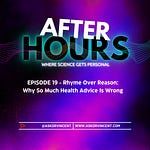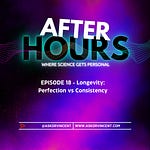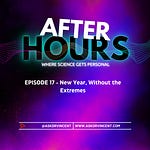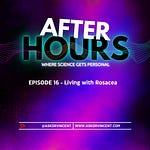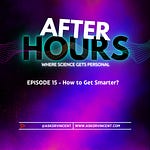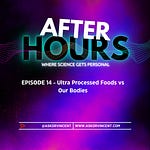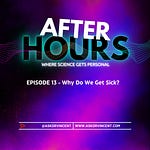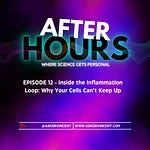Listen to the full episode: After Hours — The Science of Weight Loss
Where science gets personal.
We’ve been told that weight loss is simple. Eat less, move more. But the truth is, your body isn’t a calculator. It’s a chemistry lab. Calories matter, yes, but how your body processes them depends on far more than diet and exercise.
In my latest After Hours episode, we unpacked the science of weight loss and why some people lose weight easily while others struggle even when they do everything right. The missing piece for many is inflammation.
The Inflammation Connection
When your body is inflamed, your cells become resistant to insulin, the hormone that helps move glucose from your blood into your cells for energy. When insulin can’t do its job properly, excess glucose gets stored as fat. Inflammation also disrupts leptin and ghrelin, the hormones that control hunger and fullness. That’s why some people feel hungry even after eating. Their hunger signals are confused.
Inflammation doesn’t only come from unhealthy food. It’s also triggered by stress, lack of sleep, processed sugar, alcohol and environmental toxins. Over time this creates a metabolic state where your body starts to fight against weight loss.
Why Traditional Diets Fail
When you dramatically cut calories or skip meals, your body senses danger and slows down your metabolism to conserve energy. This is a survival mechanism known as adaptive thermogenesis. You lose weight at first, but once you go back to normal eating your body rebounds and stores even more.
That’s why the real key to lasting weight loss isn’t restriction. It’s restoration. Restoring metabolic balance, gut health and hormonal sensitivity so your body can burn fat naturally again.
The Gut–Brain Axis of Weight
Your gut doesn’t just digest food, it talks directly to your brain. When your gut microbiome is out of balance, it can trigger cravings for sugar and high-fat foods, affect your mood and change how efficiently you use energy. A disrupted gut microbiome also fuels inflammation, which ties gut health and weight closely together.
Foods rich in prebiotics like apples, oats and garlic feed good bacteria, while phenolic antioxidants help calm inflammation. This is why I often talk about apple phenolics. They lower inflammation, improve insulin sensitivity and support the gut-brain connection without disrupting your natural sleep-wake rhythm the way stimulants or artificial aids can.
Beyond Numbers: What Healthy Weight Really Means
True health isn’t about chasing a number on the scale. It’s about lowering chronic inflammation, improving energy, mental clarity and overall wellbeing. When your body is balanced, your weight becomes a reflection of health, not a punishment.
If there’s one message from The Science of Weight Loss, it’s this. Your body doesn’t need to be forced into change. It needs to be supported into balance.
We are so grateful for your support, so we’d like to offer you a special Renovatio deal:
PS: This session was recorded LIVE, thank you to everyone who tuned in!




